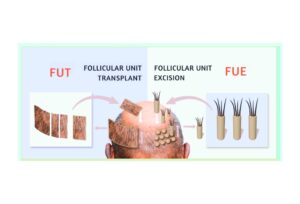Sometimes damaged hair (and hair loss) can be the result of an autoimmune condition, or it could mean something has changed with your medications, among many other things, including hormones and diet. Reasons can range from the simple and temporary—a vitamin deficiency (as listed above)—to the more complex, like an underlying health condition. In many cases, there are ways to treat both male and female hair loss.
Health and Hair Loss
How to care for our hair & hair follicles.
Have you been finding lately that your bad hair day has stretched into a weeks time? Does it seem like all summer long your hair just hasn’t been the same? Are there changes in your hairs health that are becoming concerning to you? It may be time for you to visit your Family Doctor.
Sometimes damaged hair (and hair loss) can be the result of an autoimmune condition, or it could mean something has changed with your medications, among many other things, including hormones and diet.
What Should You Watch For?
 Changes in the health of your hair may not be cause for alarm (sometimes its just that your shower water is too hot), but its always worth it to visit your GP and try to find the cause of these changes. If there’s a difference in texture, thickness or appearance — your hair becomes curlier, or harder to manage and you haven’t changed hair-care products — it could indicate a change in your overall health.
Changes in the health of your hair may not be cause for alarm (sometimes its just that your shower water is too hot), but its always worth it to visit your GP and try to find the cause of these changes. If there’s a difference in texture, thickness or appearance — your hair becomes curlier, or harder to manage and you haven’t changed hair-care products — it could indicate a change in your overall health.
Illness can be a culprit for changes in your hair, as well your hair can give you a sense of whether or not you may have vitamin deficiencies. Certain medications can also affect your hair. Brittle hair, or hair that breaks easily, as well as hair shedding more than usual or a change in texture are all reasons to see your GP.
Hormones and Hair Loss
Hormonal disturbances and vitamin deficiencies are across the board and can affect the hair in all races. There’s a type of hair loss that women get related to hormones. It tends to affect the top of the scalp and leaves the frontal hairline intact.
There are also very particular kinds of antihypertensive medication that can cause hair loss.
Telogen Effluvium
Any kind of physical trauma like surgery, a car accident, or a severe illness, even the flu can cause temporary hair loss. This can trigger a type of hair loss called telogen effluvium. Hair has a programmed life cycle: a growth phase, rest phase and shedding phase. When you have a really stressful event, it can shock the hair cycle, (pushing) more hair into the shedding phase. Hair loss often becomes noticeable three-to-six months after the trauma.
What to do About It
Thinning hair and hair loss are also common in women, and no less demoralizing. Reasons can range from the simple and temporary—a vitamin deficiency (as listed above)—to the more complex, like an underlying health condition. In many cases, there are ways to treat both male and female hair loss. It all depends on the cause.
Always visit your doctor and/or a dermatologist before seeking out hair restoration options.

















